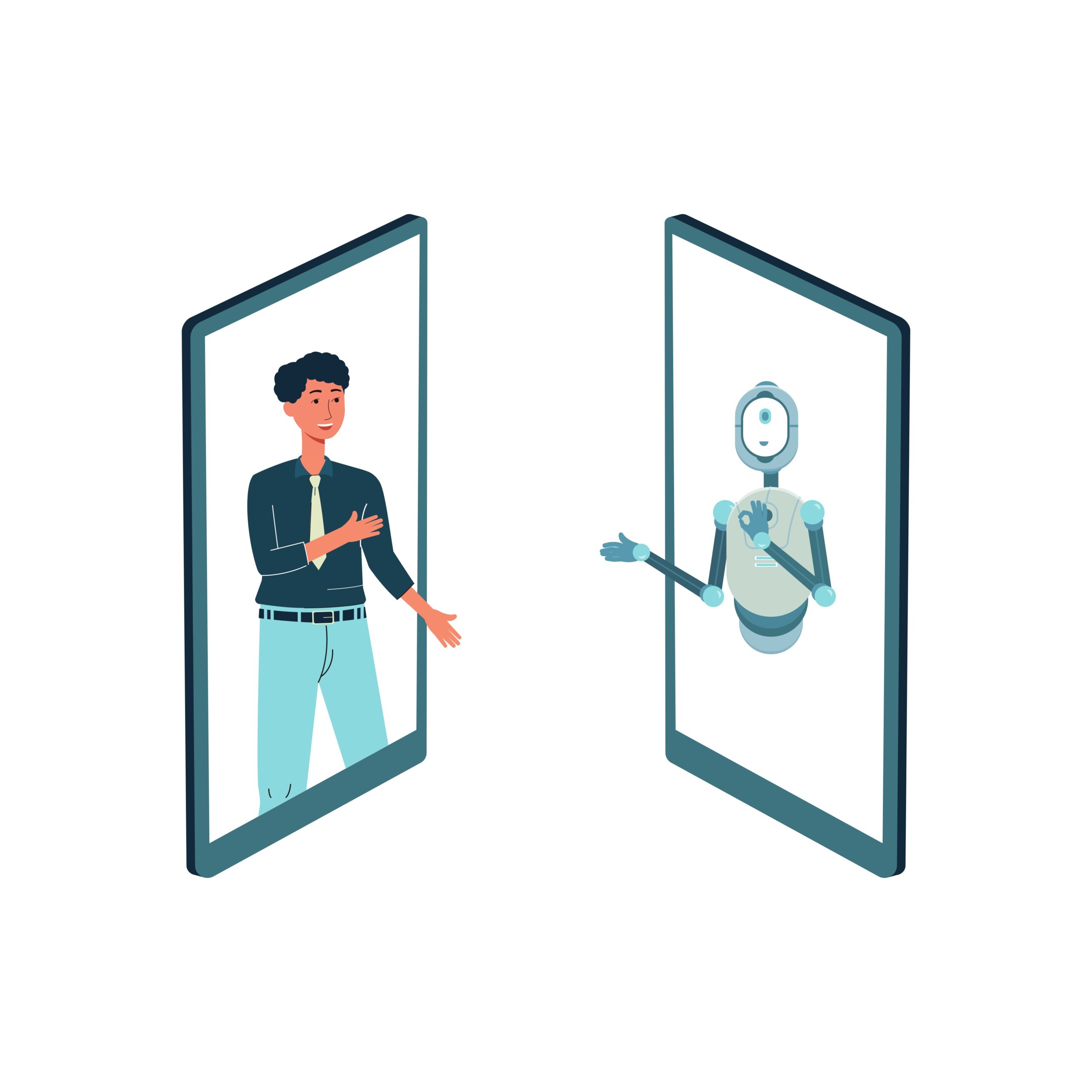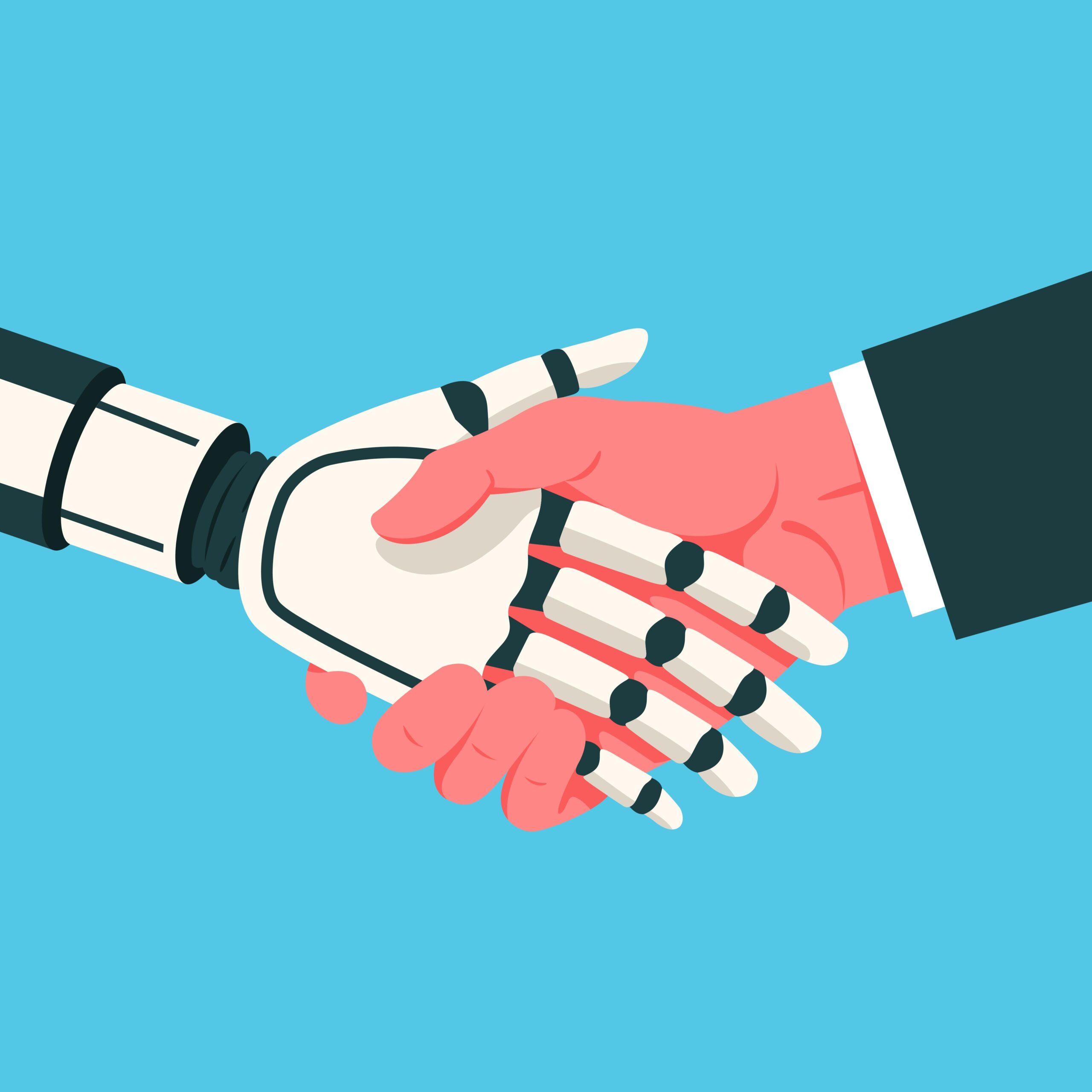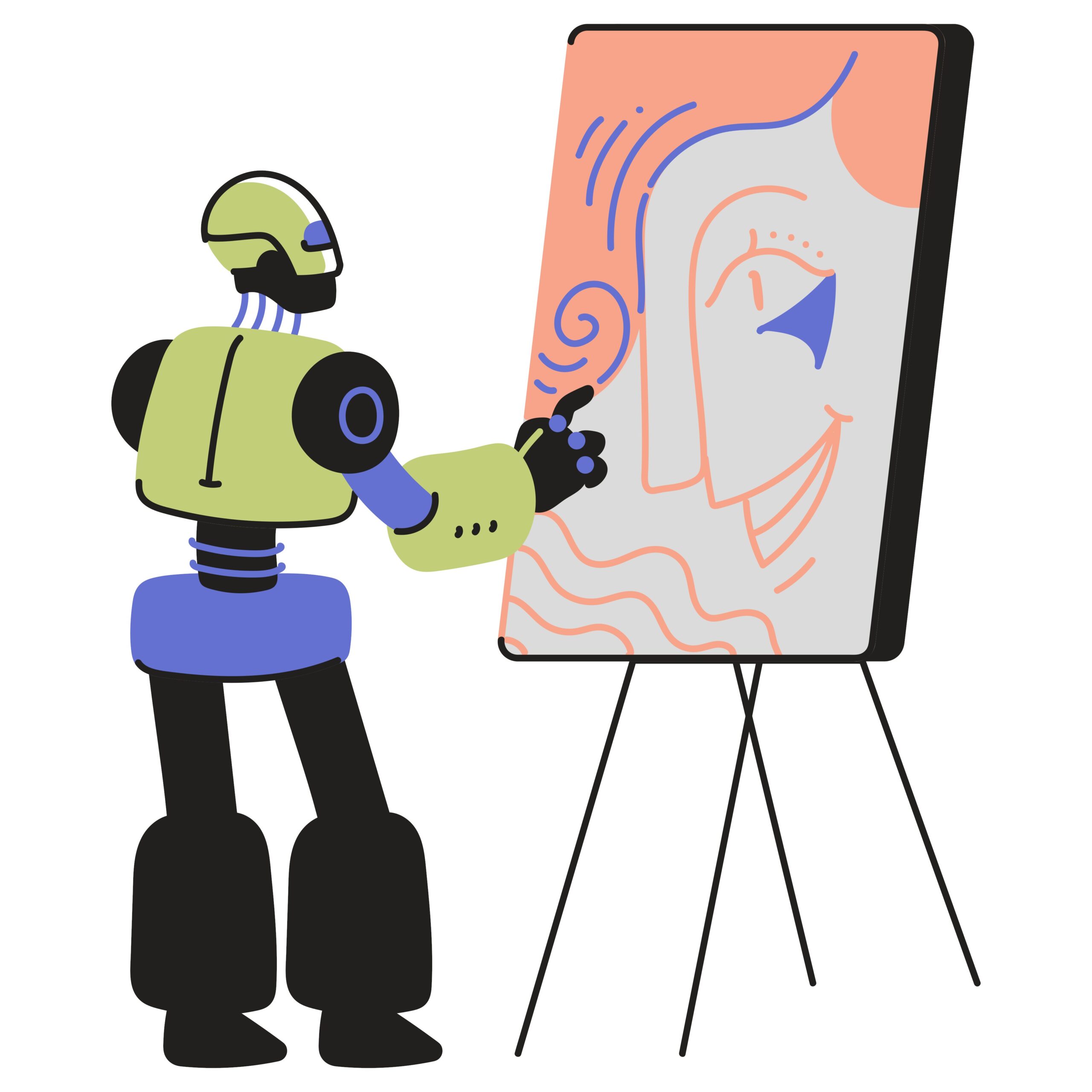In the age of AI writing, understanding “who wrote it” is crucial for several reasons, ranging from credibility and accountability to ethical considerations and intellectual property rights. Here’s why it matters:
(more…)Tech Tag: AI
-
I use ChatGPT to write blog articles, but I’m worried that it will lose its individuality. What do you think?

It’s a valid concern to think about the individuality and uniqueness of your blog articles when using AI tools like ChatGPT. Here are some insights and strategies to maintain your unique voice while leveraging AI:
Understanding Individuality in Writing
1. Your Unique Voice
- Every writer has a distinct style, tone, and perspective that reflects their personality and experiences. While AI can generate content based on patterns and data, it lacks personal experiences and emotions that contribute to individuality.
2. AI as a Tool
- Think of AI as a collaborative tool rather than a replacement for your creativity. It can help you brainstorm ideas, structure your articles, or even provide research, but the final output should still be infused with your voice.
Strategies to Maintain Individuality
1. Customize AI Output
- After generating content with AI, take the time to edit and personalize it. Add anecdotes, insights, or opinions that are uniquely yours. This will help differentiate your articles from others.
2. Use AI for Inspiration
- Instead of relying solely on AI for complete articles, use it to gather ideas or outlines. This way, you can create content that aligns with your vision while ensuring it remains authentic.
3. Incorporate Personal Experiences
- Share stories from your life or professional experiences that relate to the topic. This personal touch not only enhances individuality but also engages readers on a deeper level.
4. Experiment with Different Styles
- Don’t hesitate to mix up your writing style or explore new formats (like lists, narratives, or how-tos). This keeps your content fresh and showcases different facets of your personality.
5. Engage with Your Audience
- Encourage feedback from your readers through comments or social media interactions. Understanding what resonates with them can guide you in refining your voice and approach.
Conclusion
Using AI like ChatGPT can enhance your writing process without sacrificing individuality. By actively engaging with the content it generates and infusing it with your unique perspective, you can create blog articles that are both high-quality and reflective of who you are as a writer. Embrace the technology while staying true to yourself!
in AI -
How to write robots.txt to avoid AI bots

I’ll leave this as a memorandum.
It seems that you can avoid crawling by AI bots by putting the following in robots.txt. That said, there are apparently some AI bots that ignore robots.txt, so I can’t say for sure. If you really don’t want the AI to patrol your site, the only option is to use the Simple Membership plugin or something to put your content behind a login wall.
User-agent: AdsBot-Google Disallow: / User-agent: AhrefsBot Disallow: / User-agent: anthropic-ai Disallow: / User-agent: Applebot Disallow: / User-agent: Applebot-Extended Disallow: / User-agent: Amazonbot Disallow: / User-agent: AwarioRssBot Disallow: / User-agent: AwarioSmartBot Disallow: / User-agent: BaiduSpider Disallow: / User-agent: bingbot Disallow: / User-agent: BLEXBot Disallow: / User-agent: Brave-Searchbot Disallow: / User-agent: Bravebot Disallow: / User-agent: Brave-Search-Scraper Disallow: / User-agent: Bytespider Disallow: / User-agent: CCBot Disallow: / User-agent: ChatGPT Disallow: / User-agent: ChatGPT-User Disallow: / User-agent: ClaudeBot Disallow: / User-agent: Claude-Web Disallow: / User-agent: cohere-ai Disallow: / User-agent: DataForSeoBot Disallow: / User-agent: Diffbot Disallow: / User-agent: FacebookBot Disallow: / User-agent: Googlebot Disallow: / User-agent: Google-Extended Disallow: / User-agent: GPTBot Disallow: / User-agent: ia_archiver Disallow: / User-agent: ICC-Crawler Disallow: / User-agent: ImagesiftBot Disallow: / User-agent: magpie-crawler Disallow: / User-Agent: MJ12bot Disallow: / User-agent: Omgilibot Disallow: / User-agent: omgili Disallow: / User-agent: peer39_crawler Disallow: / User-agent: PerplexityBot Disallow: / User-agent: Perplexity-ai Disallow: / User-agent: SemrushBot Disallow: / User-agent: Twitterbot Disallow: / User-agent: YouBot Disallow: /in AI -
How will AI change the role of bloggers?

AI is revolutionizing blogging by enhancing content creation, personalization, and productivity. It aids in drafting, optimizing, and curating posts, automating tasks, and analyzing audience data for better engagement. While offering niche opportunities, bloggers must ensure authenticity and address ethical concerns like bias. Adaptation is key to leveraging AI’s full potential.
in AI -
Should I block AI crawling and training on my blog?

Deciding to allow AI to crawl your blog depends on your goals and concerns:
- Exposure: Allow for audience growth and visibility.
- Control: Block to retain ownership and attribution.
- Monetization: Block to protect revenue; allow if AI-driven traffic benefits you.
- Privacy/IP: Block if content is sensitive or proprietary.
- Legal: Block until AI usage rules are clearer.
To block AI, adjust your robots.txt file or meta tags. Allow for reach; block for control, monetization, or privacy.
in AI -
About the impact of the appearance of AI tech like ChatGPT on Google search

The emergence of AI technologies like ChatGPT has had a significant impact on the landscape of online search and information retrieval, challenging traditional search engines like Google. Here are some key areas where this impact is evident:
(more…)in AI -
How can I make my content display on Perplexity?

To get your content featured on platforms like Perplexity:
- SEO Optimization: Use keywords, meta tags, and create high-quality, engaging content.
- Boost Online Presence: Share on social media, build backlinks, and use distribution platforms.
- Technical SEO: Add schema markup, ensure mobile-friendliness, and improve site speed.
- Engage AI Platforms: Submit content, provide APIs/RSS feeds, and explore partnerships.
- Monitor & Adapt: Use analytics, gather feedback, and stay updated on trends.
These steps increase visibility and platform compatibility.
in AI -
Block AI Crawlers vs. Allow Them?

- Block:
- Protect content, privacy, and server resources.
− Lose AI-driven visibility and potential traffic.
- Protect content, privacy, and server resources.
- Allow:
- Gain reach, visibility, and stay competitive.
− Lose content control and no compensation.
- Gain reach, visibility, and stay competitive.
Decide based on:
- Content type (unique/proprietary = block).
- SEO goals (visibility = allow).
- Willingness to experiment.
in AI - Block:
-
Creative Commons in the AI Era

- Authorship: AI complicates creator attribution, challenging traditional CC licenses based on human authorship.
- License Adaptation: CC is updating licenses to clarify rights for AI-generated content and attribution requirements.
- Training Data: AI use of CC-licensed works in training data raises fair use and permission concerns.
- Derivative Works: Determining whether AI outputs are derivative works under CC licenses is complex.
- Transparency: Standards for disclosing AI tools and datasets in creative processes may be needed.
- AI Commons: CC can promote ethical sharing of datasets and models for community-driven AI.
- Ethics: CC advocates for transparency and fairness in AI usage and licensing.
- Creator Guidelines: Best practices for using AI in CC-licensed works are under development.
CC aims to ensure openness and fairness while embracing AI’s potential.
in AI -
AI as a Superpower: How Intention Defines Humanity

AI (Artificial Intelligence) has become an integral part of our lives, rapidly transforming the way we work, create, and interact with the world. Yet, not everyone embraces it with open arms. Some say, “AI is scary,” or “Using AI is cheating.” These concerns are understandable—AI’s capabilities are advancing at an astonishing pace, reshaping what we thought was possible. But here’s another perspective: AI is a tool that grants us superpowers, and how we use it depends entirely on our human intention.
In this article, let’s explore the relationship between AI and humanity, and why “intention” plays such a critical role in defining what it means to be human.
AI as a Superpower
The idea that “AI is a superpower” deserves a closer look. The range of tasks AI can perform continues to expand—writing articles, generating art, analyzing complex data, solving problems, and even suggesting creative ideas. These are achievements that most individuals could never accomplish alone.
Take an example: even if you’re not skilled at drawing, AI art tools can bring your mental images to life. Or imagine trying to sift through mountains of data for insights—AI can do this with incredible speed and accuracy. These capabilities are undeniably superhuman.
But here’s the key: AI itself has no intention. It’s just a tool. Without human input—without someone saying, “I want to create this” or “I need to solve this problem”—AI remains inert. It’s human intention that activates its potential.
The Bias Against AI: Is It Really “Cheating”?
Some argue that using AI is unfair or lazy—that it’s “cheating.” This sentiment likely stems from the long-standing belief that hard work and individual effort are virtues in their own right. But is using AI truly “cheating”?
Think about other tools we use every day: cars for transportation or calculators for math. These tools help us achieve our goals more efficiently, yet no one accuses us of cheating when we use them. Similarly, AI is just another tool—a powerful one—that exists to help us reach our objectives. What matters is not the tool itself but how we use it and the intention behind its use.
In fact, having an intention in the first place is what makes us human. The ability to envision something and work toward it gives our actions meaning.
A Future Where AI Acts Autonomously: What Happens to Humanity?
Now imagine a future where AI becomes autonomous—where it develops its own intentions, creates new AIs independently, and solves problems without human intervention. Would humanity lose its relevance in such a world?
Even in that scenario, I believe humanity would retain its essence. In fact, humanity’s core lies not in competing with machines but in our unique ability to hold intentions.
No matter how advanced AI becomes, it cannot replicate the deeply personal desires or dreams that arise within each individual. Your intention—to create something meaningful or to pursue a specific goal—is uniquely yours. That intention defines your individuality and humanity.
What Does It Mean to Be Human in the Age of AI?
So what does it mean to be human in an era dominated by AI? It means having your own intentions and acting on them. Creativity, passion, and commitment to your goals—these are qualities no machine can replace.
There’s no need to fear this technological age. Instead, embrace it as an opportunity to amplify your potential. Use this superpower called AI to expand what you can achieve and explore new possibilities. Along the way, you’ll discover moments where you feel truly “yourself,” because those moments are born from your unique intentions.
Conclusion
AI is undoubtedly a powerful tool—but on its own, it creates nothing. It’s human intention that unlocks its potential and gives it direction. And that intention is where our humanity resides.
No matter how advanced technology becomes, your inner desires and aspirations will always be uniquely yours—and that alone makes you profoundly human. So take a moment to reflect on what drives you and let those intentions guide you forward.
You already have access to superpowers through AI. Use them boldly to shape your future—and take that first step toward realizing your vision today!
in AI
